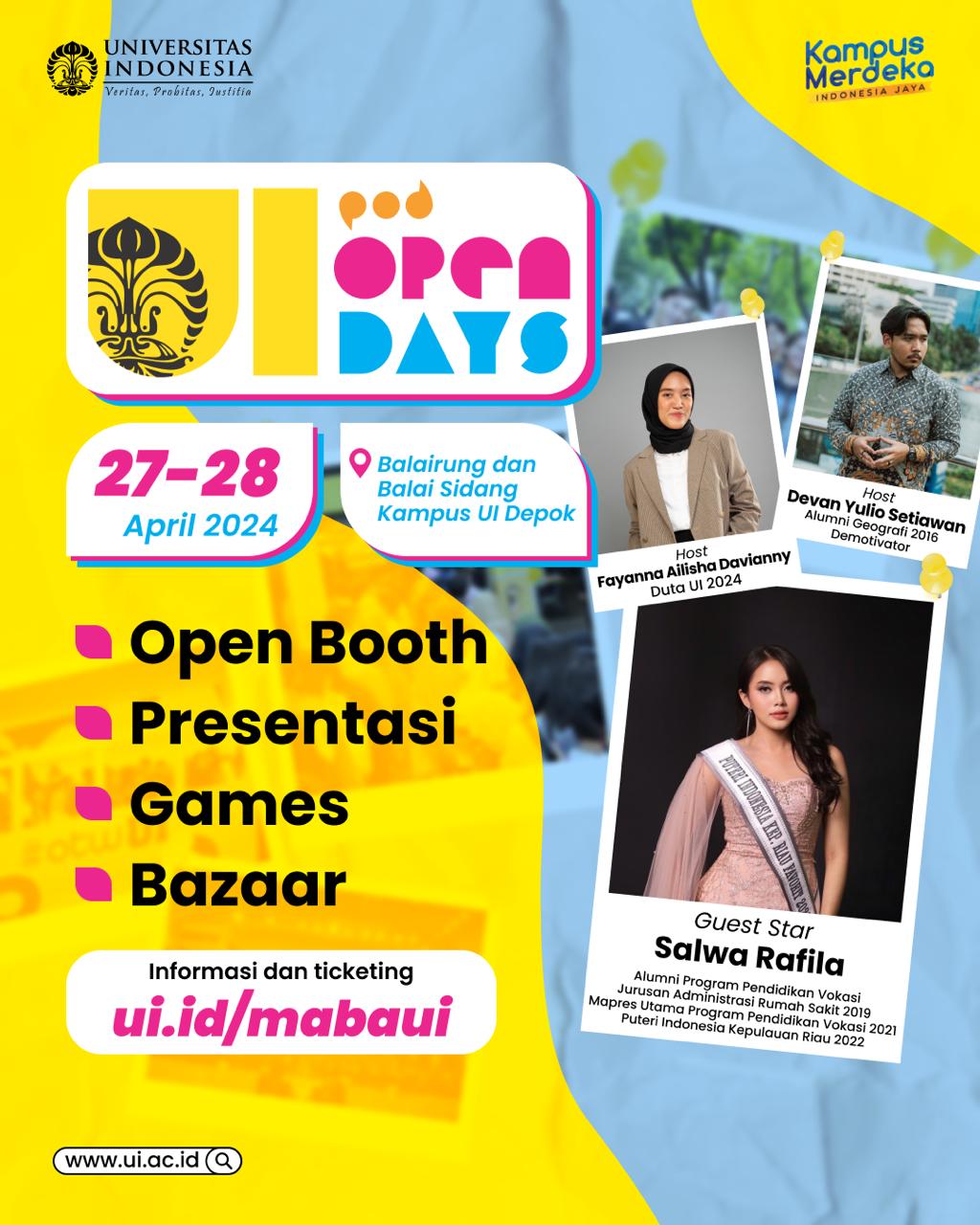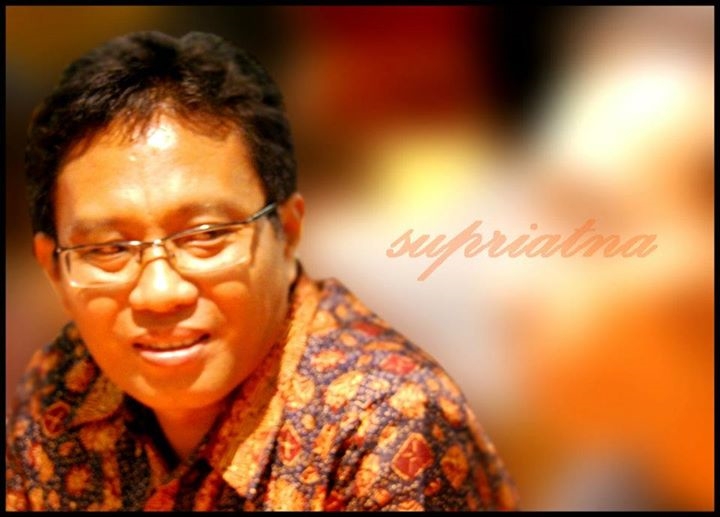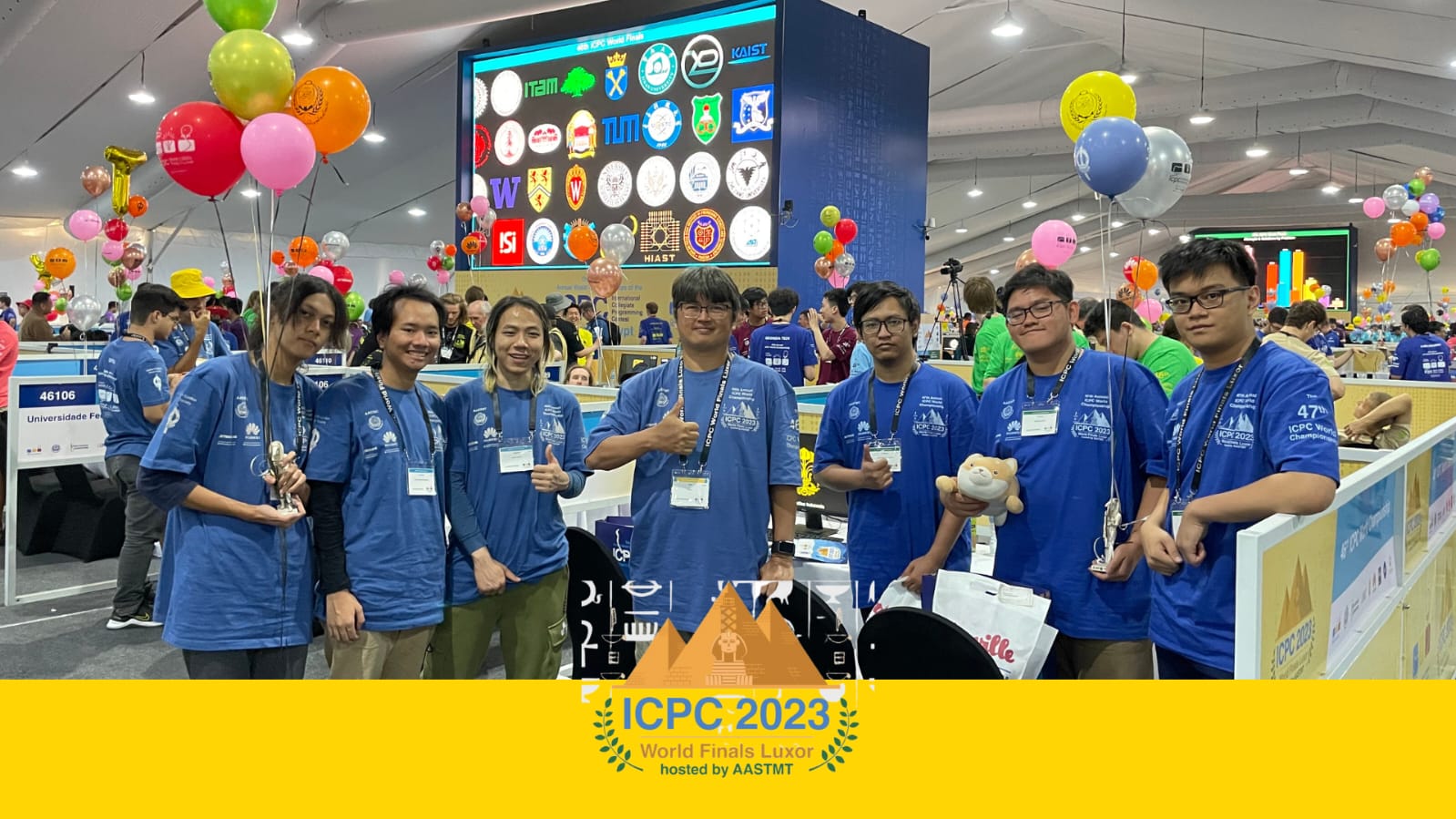Vocational Programme of Physiotherapy
Course Description
The Vocational Programme of Physiotherapy, part of Vocational Programmes Universitas Indonesia, is a programme that produces professional intermediate-level experts possessing practical skills and capable of performing tasks related to physiotheraphy.
Vision:
To become the best Vocational Physiotheraphy programme in Southeast Asia in 2025 by
Missions:
- Administring and developing educational programs in Physiotherapy, at the Diploma level, with a competency-based continuously improved so that the graduates produced are capable of carrying out physiotherapic services with service standards that follow international developments in physiotherapy;
- To administer and develop organisation and management oriented towards quality, autonomy, and accountability;
- To foster networks of partnership with various healthcare institutions, hospitals, related educational institutions throughout Indonesia and the world, as well as professional associations;
- To provide useful and excellent contribution towards the community through community service activites.
Graduate Profile
Graduates of the Vocational Programme of Physiotherapy are intermediate-level professional experts possessing practical skills that allow them to perform tasks related to physiotherapy.
Goals
The educational goal of the Vocational Programme of Physiotherapy is to produce intermediate physiotherapy experts by developing, maintaining, and remedying body movement and functions throughout one’s life span by making use of manual treatment, increasing mobility, equipments (physical, electrotherapeutic, and mechanical), exercise in function, and communication and education.
Graduate Competence
Graduates of the Vocational Programme of Physiotheraphy are:
-
- Capable of implementing physiotherapy sciences.
- Capable of performing physiotherapical services within communities
- Capable of implementing Information Technology
- Capable of carrying out physiotherapical processes
- Capable of adhering to professional ethics
- Capable of performing physiotherapical services
The Physiotherapy programme currently boasts an absorption rate of 85%, which means that 85% of graduates are accepted in various sectors of employment: state-run and private hospitals, special/educational hospitals, clinics, spas, health/sports/fitness centres, and foundations. Graduates are also prepared to work in various hospitals abroad.
Graduate Employment
According to the Act of the Ministry of Health (Kepmenkes) No.1363 of 2001 :
“Physiotherapy is a form of healthcare aimed at individuals and/or groups in order to develop, maintain, and remedy body movement and function throughout their life process by employing manual handling, increase in mobility, equipments (physical, electrotherapeutic and mechanical), exercise in function, communication.”
The Ministry of Health of the Republic of Indonesia defines physiotheraphy as follows: a [form of] healthcare aimed at individuals and or groups in an effort to develop, maintain, and remedy movement and function throughout one’s life process by employing physical modality, physical agents, mechanics, movement and communication.
The increase in candidates applying for a physiotheraphy major has been linked to a growing demand in practitioners of physiotherapy. Jobs available to physiotheraphists are not limited to the Civil Service in Medical Rehabilitation Units to be found in hospitals. Matias Ibo, physiotherapist to the Indonesian National Football Team, is an example of a physiotherapist who has made it into the spotlight.
Physiotherapy, itself a branch of medicine, may be further subdivided into four sectors: Promotion, Prevention, Treatment (Curative), and Rehabilitation. The average physiotherapy student is more likely to work in Treatment and Rehabilitation, According to Sri Mardiman, Industrial Physiotherapy and Sports Physiotherapy are relatively less cultivated in comparison to other domains of physiotheraphy, at least in Indonesia. Over the last five years, however, interest in Sports Physiotheraphy has grown; on the other hand, the author has only found one Industrial Physiotheraphy consultant in an oil company in East Kalimantan. A tracer study has shown that 100% of OT graduates are accepted into employment, while 75% of FT and RS are absorbed in industry, the remaining 30% continue to graduate level. The opportunity to become a civil servant in the Ministry of Health is very wide open. Try to look at the position of civil servants in the Ministry of Health either in the regions or at the center for those whose educational background is “Physiotherapist”, “Occupational Therapist”, or “Medical/Hospital Recorder Expert”.
industrial Partners
Vocational Programmes UI currently works with the Indonesian Physiotheraphy Association (IFI), a professional association established in 1961 aiming to introduce the then novel profession to Indonesian society. IFI strives to increase the competence of its members through various educational, scientific, and community service activities. Supported by various stakeholders, IFI tries to give its best in improving the health and productivity of Indonesians. The Vocational Programme of Physiology is also affiliated with the following hospitals: RSCM, RSUP Fatmawati, RSP Rotinsulu, RSUD Tangerang, RS Grha Permata Ibu, and RS Gatot Subroto.
Graduate Certification
In response to the ASEAN Free Trade Area (AFTA), Vocational Programmes, including the Vocational Programme of Physiotherapy, provides competence certifications for all of its graduates, based on the Hospital Administrative Executive Assisstant scheme and conducted in collaboration with the UI Professional Certification Institution (LSP-P1 UI) and the National Professional Certification Board (BNSP)
Tuition Fee
Based on the UI Education Fees Decree in 2022
Tuition fees are set at a fixed rate, comprising of an Operational Tuition Fee (BOP) of Rp10.000.000 each semester,
an Entrance Fee (UP), payable on admission, amounting to Rp 11.500.000.
Contact
–



